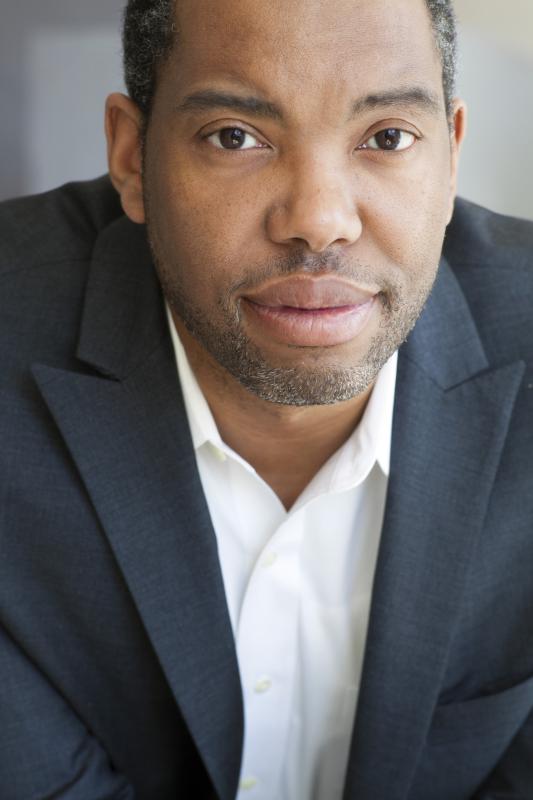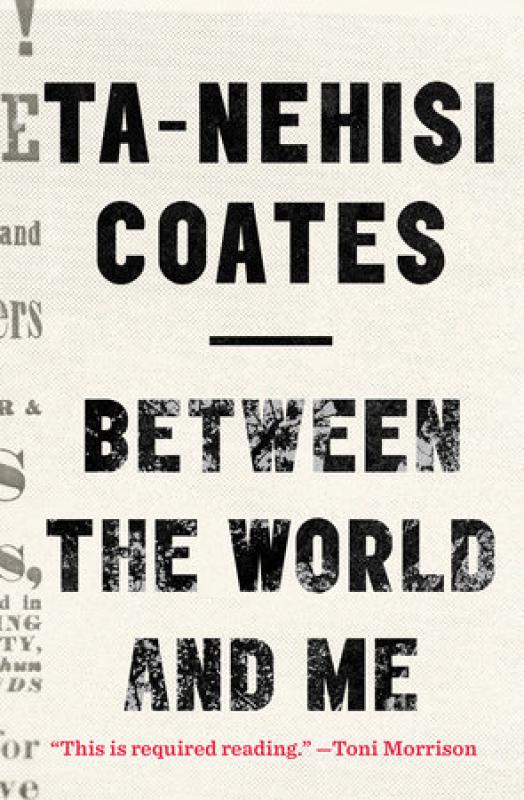On the night of Nov. 24, 2014, Ta-Nehisi Coates found his teenage son Samori glued to the television, eager to see whether white police officer Darren Wilson would be indicted for fatally shooting black teenager Michael Brown in Ferguson, Missouri. No indictment came down. Samori said, “I’ve got to go,” went to his room and cried.
“It was not my expectation that anyone would ever be punished,” Coates writes in his rough-hewn, powerfully written book Between the World and Me. “But you were young and still believed.”
That sad and troubled gap between generations of black American men led Coates — a senior writer at The Atlantic and the author of that magazine’s widely circulated 2014 article “The Case For Reparations” — to spend the next few months crafting a short book about power, violence, love, and fear. Written as a long letter to his son, Between the World and Me sums up, with messy intensity, one man’s exhaustion and exasperation with his country’s sporadic, paper-thin dialogue on race relations.
Roundtables on cable news are not Coates’s concern. What defines black life in America, he writes to Samori, are the injustices born of a long-held falsehood: that of race itself. “Race is the child of racism, not the father,” he writes. The shooting in Ferguson, he argues, tells a story not only of one white man’s actions, but of a police force comprised of “men enforcing the whims of our country, correctly interpreting its heritage and legacy.” Blackness, that irreversible invention of man, still defines power and violence in America today — “the system that makes your body breakable.”
Coates’s book blends stories of his own hardscrabble youth in Baltimore with observations of his son’s coming of age. Some passages are cooly wistful; others are hot and eviscerating. It is a brief work, easily read in a day. Just brace yourself. Coates delivers a fraught mix of broad condemnations, small gratitudes, and existential frustrations — a palpable rush of energy on every page.
It’s not a history lesson. It’s not a manifesto, or even an act of journalism. It is a letter of love and rejection, forged with steely emotion and delivered unburnished. It’s rough. It’s personal. It’s a hurricane in a jar.
Between the World and Me does not offer resolutions. It only fleetingly acknowledges progress made on civil rights issues in recent decades. It speaks sparingly of individuals. Instead, Coates pulls forward the mythic icons that made this country — oceans, ships, chains, sugar, tobacco, cotton, gold, blood, guns — and reminds us that these forces still shape the present.
Many readers have pointed out similarities between this and James Baldwin’s 1963 book The Fire Next Time. But Coates’s book is also, naturally, a sequel to his accomplished 2008 memoir The Beautiful Struggle, which focuses mainly on his father, a former Black Panther and research librarian at the historically black Howard University in D.C.
And yet, he writes to Samori, “you can no more be black like I am black than I could be black like your grandfather was.” This belief is central to Between the World and Me, and it is the reason why readers who may find this book thin on nuance or practical advice are missing the point. Coates is tirelessly pessimistic, but he is also keenly alert. He shares his lessons and confusions in equal measure.
That’s what it takes to live in America. “History is not solely in our hands. And still you are called to struggle, not because it assures you victory but because it assures you an honorable and sane life.”•




